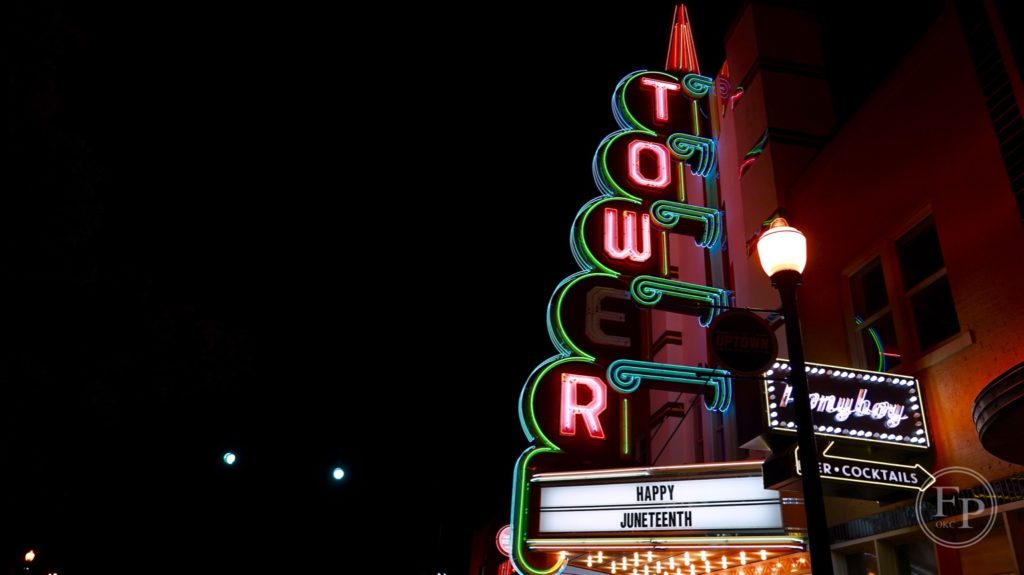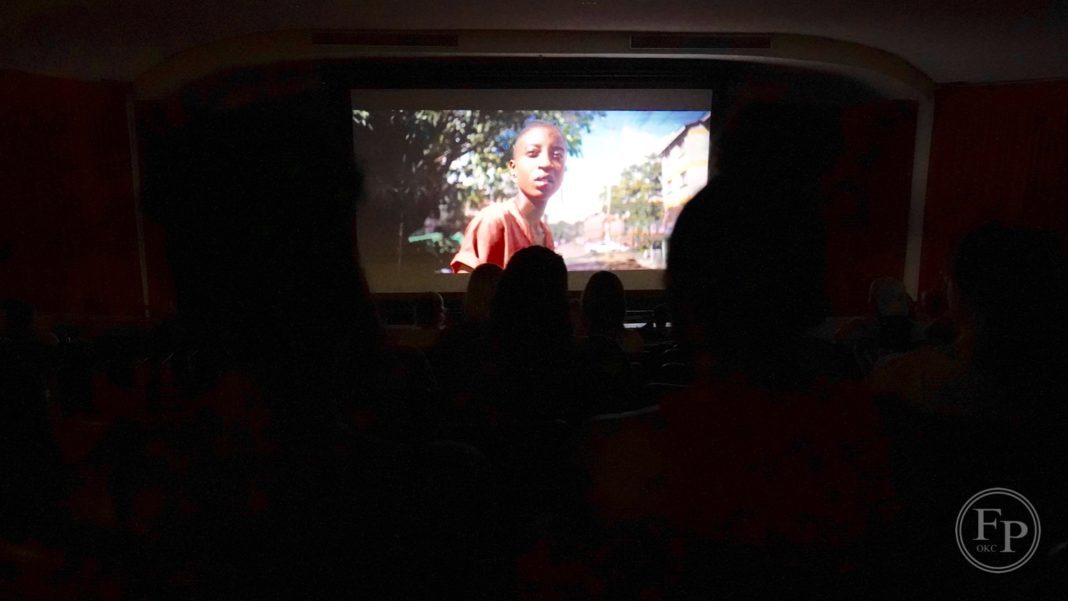Last Updated on June 23, 2019, 9:31 AM | Published: June 22, 2019
It isn’t often that Oklahoma City gets to view a film that shows life closer to how Africans see life in Africa, especially from the perspective of queer youth.
But, viewers had such an opportunity Thursday night at Tower Theater with the showing of “Rafiki”, an award-winning film by Kenyan director Wanuri Kahiu.
“Friend”
“Rafiki” is the Kiswahili word for “friend,” a euphemism for lover or for a relationship between a boyfriend and girlfriend.
The film shows the lives of Kena and Ziki who have been raised to be “good Kenyan girls” who would “become good Kenyan wives.”
But, the girls’ feelings for each other create an upheaval in their community where non-traditional relationships are treated as threats to the society.
Typically, the Hollywood version of a story like this is to have these young women either run away or to have one or both die tragic deaths in the end.
But, that is not how this independent, non-Hollywood film ends. Instead, there are many open ends to the story that is not quite finished.
Free showings Sunday
After the showing we observed a range of emotions from the crowd. Some were quietly talking, others laughing, and more than just a few had tears in their eyes.
In response, sponsors have stepped up to make the last two showings of Rafiki free.
The free showings will be at 3:00 p.m. and 6:00 p.m. Sunday at Tower Theater.
For more information go to the event’s Facebook page.
See Free Press coverage of Pride Week events at okcfp-staging.udk9a8jq-liquidwebsites.com.
Organizers
The showings have been organized by Queer Film Continuum in Oklahoma City with eager support from Tower Theater as a part of OKC Pride Week.
“Queer Film Continuum focuses on creating a space through curating and uplifting diverse queer media with educational programming & events in Oklahoma,” according to a spokesperson for the group.
“Queer film is not so accessible here in terms of independent,” she told Free Press. “You might get a lot of Hollywood stuff and you might get things that are made about queer people, but we show things that are made typically by queer people.”
Different view
Christian missionary films continue to either show Africans as courteous, happy church-goers or as people in grinding, violent poverty, desperate for help from someone outside of Africa.
Instead, “Rafiki” is directed and produced by a Kenyan about the lives of young people in Kenya today. It depicts powerful mixtures of every human emotion and condition.
The film is, like most of life, neither completely tragic or positive.
The main characters of the film are two young women who develop a love for each other forbidden in traditional Kenyan society.
“Rafiki” shows the struggles the women have in their families and in the society around them.
This is not a tragic tale, however, but a hopeful one set in a country that has outlawed homosexuality since its colonial days.
It’s about the tensions in a modern-day society where life and expectations of personal freedom are growing and shaking the roots of the traditional Christian society of Kenya.
Background provided
Andreana C. Prichard, Ph.D., gave a brief introduction to the film before the showing Thursday.
She is the Wick Cary Associate Professor of Honors and African History in the Honors College at the University of Oklahoma.
Prichard provided Free Press with her notes used for the introduction.
She said that the movie is based on an award-winning short story “Jambula Tree” by Ugandan author Monica Arac de Nyeko.
“‘Jambula Tree’ is set in housing estates — large apartment blocks — in urban Kampala, the capital of Uganda,” Prichard said.
“The short story ‘Jambula Tree’ is beautiful, full of magically evocative language that describes the slow-building love affair between two school-aged girls, and the way in which their community responds to the relationship.”
Prichard said that when “Rafiki” was released, it was banned in Kenya for “promoting lesbianism.”
After a long appeals process, Kahiu was allowed to show the film in Kenya for seven days only where it “sold out and received wide critical acclaim.”
Kahiu was nominated for Cannes and is the first Kenyan director to be included in the film festival, said Prichard.

Founder, publisher, and editor of Oklahoma City Free Press. Brett continues to contribute reports and photography to this site as he runs the business.









